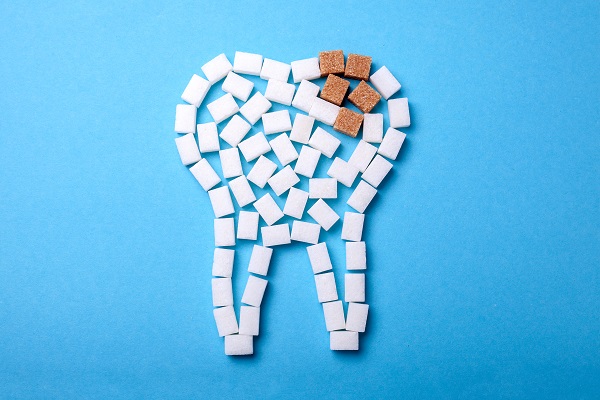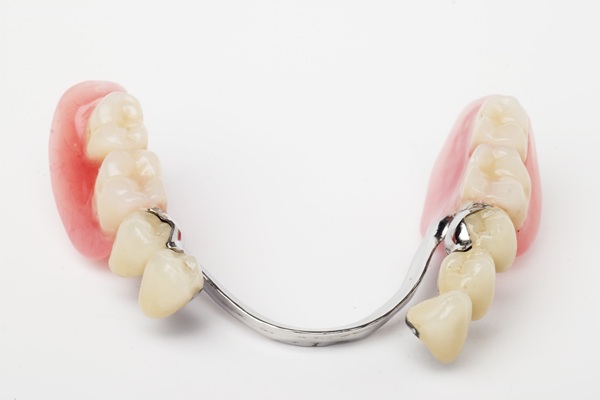A Family Dentist Explains What Sugar Can do to Teeth

Family dentists recommend keeping sugar consumption to a minimum, regardless of age. Sugar increases the risk of obesity, kidney disease, diabetes, and many other health conditions. It also increases the risk of developing oral issues like gum disease and tooth decay.
A family dentist explains how sugar damages teeth
The more sugar a person consumes regularly, the more likely they are to develop tooth decay and gum disease. Oral bacteria convert food particles in the mouth into acids that destroy the structures of the teeth. These microorganisms coat the teeth with plaque, which houses bacteria and the acids they produce. When plaque gets beneath the gum line, the bacteria in it infects the tissues there, which in turn, leads to the body releasing antibodies to fight off the infection. The result is gum disease, which includes inflammation, tenderness, and damage to the structures that support teeth.
Sugar is the main thing acid-producing bacteria in the mouth feast on, so the more sugars a person consumes, the more time their teeth spend being coated with acids.
According to a family dentist, the first noticeable sign of tooth decay is the formation of cavities. These are tiny pits that develop on teeth surfaces. When left untreated, a cavity will expand until it completely damages the tooth. Common signs of tooth decay include:
- Sensitivity to hot or cold foods
- Pain when chewing
- Toothaches
- Bad breath
Treating the effects of sugar on teeth
A family dentist has a few tools at their disposal when it comes to treating tooth decay. Some of the more common treatments include:
- Fluoride treatments: Application of fluoride can protect teeth from decay for up to six months
- Fillings: A filling seals up the holes created by tooth decay
- Composite bonding: Dental bonding can be used to rebuild teeth that have been damaged by decay or to fill up cavities
- Crowns: Dental crowns can be used to protect teeth that have been severely damaged by decay
- Root canals: This procedure is performed when tooth decay reaches the pulp chamber
- Extractions: Pulling a tooth is used as a last result when tooth decay has led to an infection that threatens to spread to other parts of the body
Protecting teeth against the effects of sugar
It can be difficult to eliminate sugar, however, it is often necessary. Below are some simple things that a family dentist recommends for individuals to do in order to minimize the effects of sugar on the teeth:
- Avoid foods and beverages with high sugar concentration like sodas
- Drink water or rinse the mouth with it after consuming sugary foods and beverages
- Use a straw to reduce the contact sugary drinks make with teeth
- Practice good oral hygiene and get regular teeth cleanings
- Use a toothpaste that contains fluoride
- Get preventative treatments like fluoride treatments and dental sealants
Visit a family dentist today
Call or visit our Lincroft clinic to learn more about how sugar affects the teeth and find out about the treatments that protect against decay.
Request an appointment here: https://lincroftvillagedental.com or call Lincroft Village Dental Care at (732) 842-5005 for an appointment in our Lincroft office.
Check out what others are saying about our services on Yelp: Read our Yelp reviews.
Recent Posts
There are many benefits to removable partial dentures instead of alternative treatment solutions (i.e., implant-supported bridges). Understanding the advantages of partial dentures can help you make the most informed choice possible about the best way to replace your missing teeth.Removable partial dentures are a form of teeth replacement for a section of missing teeth. They…
Full mouth reconstruction involves replacing and repairing damaged or missing teeth. A treatment plan includes a variety of different treatments, and one common procedure is known as dental bridge treatment. This review takes a closer look at how general dentists use dental bridges to replace teeth during full mouth reconstruction. Most patients have several available treatment…
Experiencing a need for a denture repair? Unfortunately, dentures are extremely prone to accidents, which can result in damages such as cracks or chips. When this happens, a lot of wearers wonder what they should do next. The answer is simple, visit a dentist's office.Denture repair should always be done by a dentist, but why?…
Most adults experience some degree of gum disease during their lifetime, but it does not necessarily lead to tooth loss. Understanding how to identify and treat the stages of this common ailment can prevent it from spreading and reduce its impact.Gum disease is an infection of the gum tissue surrounding the teeth. It starts with…


